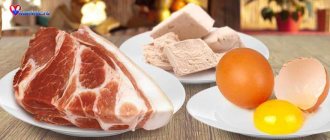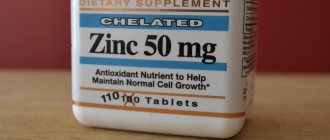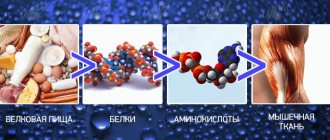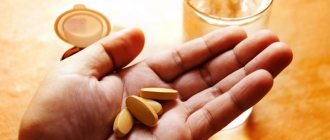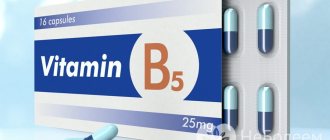What is isotonic
Sports isotonics or isotonic drinks are drinks whose consumption maintains the water-salt balance in the body during sports. Let's figure out how it works and why it's important.
When muscles contract intensely, their temperature rises. To prevent “overheating” of the body, sweating begins: moisture, evaporating from the surface of the skin, cools it - and therefore the blood flowing to it, which, in turn, reduces the temperature of the entire body to normal (36.6 degrees). It sounds like a well-functioning process, and it seems that you can simply drink water, replenishing its losses. But the fact is that along with sweat, the body also spends electrolytes, the lack of which can lead to negative consequences.
How much water should runners drink?
Electrolytes are minerals found in the fluids in our body. They break down into electrically charged particles - ions - and are responsible for regulating water balance, blood PH levels, and also create electrical impulses necessary for muscle contraction, any physical activity, and the correct course of complex neuromuscular interactions. Accordingly, if an athlete loses a lot of salts through sweat, and their content in the blood plasma drops, this can lead to fatigue, cramps, and in extreme cases, hyponatremia and death.
Hyponatremia is a condition in which the content of sodium ions in the blood plasma falls below 135 mmol/l. This can cause symptoms such as bloating, nausea and vomiting, headache, confusion, agitation, loss of consciousness, difficulty breathing, unresponsiveness and more serious consequences for the body.
photo: eatyourselfbrilliant.co.uk
Action, composition and scientific research
Isotonics contain a complex of mineral salts and carbohydrates in the same proportion as they exist in blood plasma. Once in the digestive tract, they are gradually absorbed and harmoniously replenish the lack of fluid and electrolytes. Due to monosaccharides, isosmotic drinks replenish glycogen reserves. Most often, the composition of a sports drink includes sodium and potassium salts, which are necessary to maintain the normal functioning of body cells, as well as calcium and magnesium. To replenish the athlete's energy balance, fast carbohydrates are used in combination with vitamin C.
Research from the University of Edinburgh in Scotland showed an average increase in endurance performance in adolescent athletes aged 14 to 18 years by a quarter. Isotonics helped maintain normal hydration of the body, which, in turn, is the main condition for the functionality of muscles and nervous tissue.
Iso-osmotic drinks are not considered doping and are allowed for use during competitions, marathons, cross-country skiing, cycling and other professional sports activities.
What is isotonic drink used for?
Drinks with electrolytes or isotonic drinks are designed to compensate for the loss of salts during physical activity.
Subscribe to “Marathon Man” on Telegram. Announcements of articles and useful selections every week.
As a rule, more than three hours of physical activity without the use of isotonic drinks leads to a decrease in strength. In one hour of intense exercise in the heat, salt loss through sweat is 800-4000 mg.
When preparing for a long race, it is advisable to increase the amount of salt consumed in food a day or two before the start. However, during physical activity it is also necessary to replenish electrolytes.
The benefits of isotonic drinks
Let's return to the stated effects, the first thing people are promised when using isotonics is maintaining blood sugar levels during physical activity.
- Considering that carbohydrates, in particular glucose, are the main source of energy for humans, its level in the blood directly affects performance and endurance. The greater the load during training, the faster the sugar level drops, therefore, the person gets tired faster and loses the opportunity to exercise. The presence of carbohydrates in the complex really helps to keep sugar within normal limits, since despite the high loads during training, a person receives a new portion of glucose with every sip of the drink.
Isotonic is an aqueous solution containing in its composition a sufficient amount of carbohydrates and electrolytes needed by the body during periods of exercise. - The second effect promised to the consumer is the prevention of cramps and spasms. A cramp is an involuntary contraction of a muscle caused by a disruption of metabolic processes within the body. The causes of the disorder can be different, but the most common are dietary deficiencies in magnesium, potassium and sodium. With regular physical activity, a person’s need for vitamins, minerals, and fluids, which take part in all metabolic processes, increases. Taking isotonics prevents the possible consequences of dehydration, including protecting against cramps and spasms, since it contains a certain amount of vitamins and minerals.
- The third and probably the most interesting of the promised effects is an increase in endurance, performance, and strength.
The functionality of the body, including endurance and muscle strength, directly depends on a person’s nutrition, in particular on the regular consumption of all necessary substances.As practice shows, most often people neglect the most necessary things, namely water and carbohydrates. It’s difficult to say why this happens; probably every person in the world has his own opinion about what he needs for results. But the fact remains unchanged, refusal of water leads to all sorts of disorders in the body, and a lack of carbohydrates further worsens the general condition, since the body lacks energy.
Considering that isotonic drinks are a drink containing vitamins, minerals and carbohydrates, it helps satisfy many of the body's needs, which ultimately improves strength and endurance. There is one time-proven rule in the world: “the simpler a thing is, the healthier it is,” if we talk about isotonics, this is 100% true, since despite the simple composition, the supplement has a lot of noticeable advantages, which together not only improve athletic performance humans, and also help maintain health.
How to drink isotonic drink correctly during training and competitions
Isotonic drinks must be consumed if physical activity is prolonged (more than three hours). But even if the workout or race is shorter, it's a good idea to compensate for the loss of electrolytes - especially if it's hot.
At the same time, it is important to remember that you need to start drinking a sports drink not three hours after the start of physical activity, but in advance, because it is better to prevent a deficiency of electrolytes than to try to replenish it later.
It is advisable to drink an isotonic drink 30 minutes before the start of the exercise, and then at regular intervals. To find out how much liquid you need to drink, you can do a test: weigh yourself before an hour-long workout and immediately after. The difference in the number on the scale will be your fluid loss per hour. Based on it, the loss of salts can be calculated. But this approach will only be true for training under the same conditions and with the same intensity.
If we talk about averaged figures, then we can take about 500 ml of liquid per hour as a guideline. However, recently, athletes and coaches often profess the approach that you need to drink according to thirst - that is, trust your body and expect it to indicate how often and how much liquid to drink.
Another important point is that if you drink too much water, the salts are “washed out” from the body. In other words, the cause of hyponatremia is not a lack of salts, but an excess of water. Therefore, it is important not only to compensate for the loss of fluid and salts, but also not to overdo it.
What are isotonics and myths about them
The main difference between isotonic drinks and other drinks is the content of the electrolyte solution, which is close to the composition of blood plasma. They consist of the following substances:
- Minerals in the form of salts: potassium, sodium, magnesium, chlorine.
- Monosaccharides: glucose, dextrose, maltose, ribose.
- Vitamins, flavorings, preservatives (ascorbic or citric acid), L-carnitine or creatine.
From a medical point of view, the use of isotonics during intense and long-term training instead of ordinary water is more justified, since they do not disrupt the osmotic balance of plasma and do not lead to increased blood viscosity and excessive diuresis.
Athletes who consume sports mineral drinks note:
- quick quenching of thirst;
- replenishing energy reserves with carbohydrates;
- improving athletic performance and endurance during training;
- accelerating the recovery process after heavy loads.
Despite the simple and understandable principle of the action of iso-osmotic sports drinks on the body, many myths have developed around them. Here are the most common:
- "They're no better than regular water." This is wrong. Pure water is saturated with too few mineral salts, unlike isotonics, which means it does not meet the body’s needs during long-term training.
- “Isotonic drinks can be replaced with energy drinks.” These are fundamentally different drinks with different targeted effects. Caffeine, guarana and other natural extracts, although they give energy, provoke increased diuresis and additional loss of moisture and salts.
- “It’s always good to drink them.” Studies have shown the pointlessness of isotonics when training or exercise lasts less than 90 minutes.
- “Isotonic drinks help you lose weight.” Solutions of mineral salts by themselves do not promote weight loss. On the contrary, they can lead to slight fluid retention after intense training and an increase in the number on the scale by 1-2 kg.
- “Quickly replenishes mineral deficiency.” Isotonics are absorbed more slowly than, for example, hypotonic solutions. This is how the biophysics of the digestive tract works. But the recovery will be more complete.
How to prepare isotonic water at home
Isotonic is not only an industrially produced liquid. There are also so-called natural isotonics. For example, coconut water, which contains essential macronutrients.
You can make your own sports drink from natural ingredients. To do this, add half a glass of orange juice and a quarter of lemon juice, two tablespoons of sugar, honey or syrup and 1/8 teaspoon of salt (for example, Himalayan pink) to two glasses of water. You can also mix coconut water with fruit juices. To simplify, fruit juice with the addition of water and salt is already isotonic.
5 DIY isotonic recipes for running
Who needs isotonics?
Rehydration (isotonic) drinks are intended to overcome dehydration during sports activities, as well as during certain types of professional activities, for example, when working in “hot shops” in the metallurgical industry.
Specialized sports drinks are recommended when the duration of a training session exceeds 45-50 minutes. Fluid losses, of course, can be replaced not only with sports drinks, but also with ordinary water. However, unlike water, sports drinks also improve performance by supplying carbohydrates to muscles.
In addition, they contain sodium, which promotes better absorption of liquid. For optimal absorption and normal performance, a sports drink should contain from 4 to 8% carbohydrates (8-16 g of carbohydrates or 32-64 kcal per 200 ml). Drinks that contain more than 10% carbohydrates (over 20 g or 80 kcal per 200 ml), such as fruit juice or sparkling water, as well as drinks with high fructose content, take longer to be absorbed in the gastrointestinal tract.
Isotonic drinks contain various minerals and vitamins, as well as carbohydrates - maltose or glucose, therefore this drink is quite high in calories and can lead to weight gain.
They can cause abdominal cramps, nausea, bloating, and diarrhea. Most sports drinks contain 5-8% carbohydrates. Try using different sports drinks during your workouts to find the one that suits you best. Electrolytes (minerals) such as sodium, chlorine, and potassium are essential for maintaining fluid balance, the body's acid-base balance, muscle contraction, and nerve impulse transmission. Sweating leads not only to water loss, but also to the consumption of electrolytes (especially sodium and chlorine). Sodium deficiency can occur in a number of cases: during acclimatization to high environmental temperatures, after repeated repeated training in the heat. In order to fully compensate for fluid losses, salt must enter the body along with water. Athletes susceptible to heat cramps sweat profusely, lose significant amounts of sodium and chloride in sweat, and consume relatively little table salt (table salt) throughout the day. As a result of prolonged exercise in the heat, hyponatremia (low sodium levels in the blood) can develop. Sweating profusely and/or drinking low-sodium or sodium-free drinks (such as water) continuously for several hours or more increases the risk of developing hyponatremia. Sodium loss through sweat during prolonged exercise in the heat can be significant, and excessive consumption of water or low-sodium drinks thins the blood, further reducing sodium levels. With moderate hyponatremia, loss of taste may occur and loss of appetite, up to aversion to food, and other disorders are possible - nausea, vomiting. Significant hyponatremia is manifested by a decrease in neuromuscular excitability, the development of muscle weakness and muscle soreness, cramps of the calf muscles, decreased blood pressure, rapid heartbeat and even loss of consciousness.
Although other heat injuries are more common, hyponatremia is dangerous and its consequences should not be underestimated. To prevent hyponatremia, drink adequate fluids (just enough to maintain normal fluid balance) and consume enough salt before, during and after exercise in the heat. Some endurance athletes find it helpful to take salt tablets during exercise. You can also recommend adding salt to the sports drink used during training: a teaspoon of salt per 1 liter of sports drink.
What types of isotonics are there?
As mentioned above, industrially produced isotonics can be ready for use in liquid form or in tablet or powder form. Typically, you can find bottles of sports drinks in supermarkets: these are popular brands such as Powerade or Gatorade. Recently, you can increasingly see new, more natural alternatives on the shelves, such as Vitamin Well, or coconut water.
If ready-made drinks are convenient to use in everyday life without wasting time on preparing them, then tablets or powders can be taken with you on a trip.
There are different options for additives, calories and flavors. When choosing, pay attention to reviews and ingredients. It should not just be water with sugar: it must contain minerals and electrolytes.
Do-it-yourself isotonic - recipes
Drinks to maintain water-salt balance have only recently appeared on the market, but have already gained the attention of aerobic exercise enthusiasts. There are several recipes that allow you to prepare isotonic water at home:
Recipe No. 1
- For preparation you will need 20 g of sugar or honey, 30 ml.
any citrus juice - freshly squeezed, as well as a little salt and 400 ml. water. The liquid is preheated slightly to room temperature, sugar or honey is added and dissolved well. Then add salt to the isotonic and slowly pour in citrus juice.
Recipe No. 2
- The second recipe will require saline solution - it can be purchased at the pharmacy. You also need 400 grams of glucose, two lemons, 2 tsp. sugar and 200 ml. water.
There are no difficulties in preparation: sugar is added to warm water, glucose and saline are poured in, and at the end the juice of two lemons is added. Instead of lemon juice, you can put it in an isotonic water bottle, after cutting it into slices.
Recipe No. 3
- The third recipe has the function of an energy drink - it contains caffeine and will give you a little energy during sports. You will need three tea bags, vitamin C tablets - about 20 pieces and half a liter of water.
First you need to brew strong tea and let it cool. Pour water into the tea and add vitamin tablets. If desired, you can add 10 grams of glucose. Pour the solution into a bottle and place in the freezer for a couple of hours.
Recipe No. 4
- A professional recipe involves adding to the drink those very ionic compounds necessary to maintain water-salt balance.
For 3 liters you need to take 2 g of sodium bicarbonate, 10 g of potassium chloride, 10 tbsp. sugar, 25 g glucose, 1.5 g magnesium sulfate. All components are mixed and used during training.
Recipe No. 5
Self-made isotonic drinks can be stored in the refrigerator for several days according to their ingredients. For example, a mixture that uses electrolytic components can be taken with you on trips. Natural formulations are more useful, but they do not last long.
Where to buy isotonic
Finding and buying isotonic drinks will not be difficult, since there is now a large selection of sports nutrition stores in almost every city. If there is no such store in your city, isotonic drinks can be bought or ordered on the websites of sports nutrition and nutritional supplement stores: almost all sports nutrition manufacturers have them in their product line. Often, isotonic drinks can be bought at EXPO during mass races.
Which ones are worth buying?
When choosing an isotonic drink, first study the information about the brand and composition of the liquid. In the sports nutrition market, you can encounter counterfeits of a well-known brand. Do not experiment with taking a new sports supplement on the day of training, since it is unknown how the body will react to it.
An important criterion for choosing the composition of a drink is the level of carbohydrates (no more than 4-8%), as well as the presence of potassium, sodium, and chlorine in the structure.
When purchasing an isotonic drink, be guided by your preferred taste and its composition. To avoid getting tired of the sports supplement, you can change its flavors. Sports isotonics are presented by manufacturers in liquid form, in tablets, in the form of a dry concentrate or gel. The bottled liquid can be purchased before training to immediately restore strength.
The product in powder form is the cheapest option for taking isotonic.
Isotonic gels can provoke a gag reflex if the athlete’s body is not yet accustomed to them. Let's look at the most popular isotonic drinks on the sports nutrition market.
Maxler Max Motion
Isotonic Maxler Max Motion is a powder for the preparation of low-calorie isotonic liquid made in Germany, certified by GMP. The manufacturer advertises it as an invigorating drink that nourishes and renews the body's energy during and after exercise.
Isotonic Max Motion can be used as a vitamin and mineral supplement for everyone in the absence of physical activity.
The composition of the powder is enriched with vitamins and minerals required for athletes, for lovers of an active lifestyle, during strength and speed loads, as well as during fitness classes.
SiS Go Isotonic
Isotonic SiS Go Isotonic was developed and patented by scientists in the UK. Available in the form of a carbohydrate gel with a “flowing” consistency and in effervescent tablets. The advantage of the gel is that it does not need to be washed down with water. This is very convenient during long workouts or marathons when you cannot carry a large supply of water or nutrition with you.
SiS Go Isotonic tablets are easily diluted with water, practical on the go, convenient for quick and gentle absorption.
The carbohydrates in isotonic sis are quickly absorbed and provide the body with the necessary energy. The variety of drink flavors allows you to choose your favorite one. The product is tested and certified by Informed Sport, which guarantees that it does not contain prohibited chemicals and steroids.
Rline ISOtonic
Rline's ISOtonic instant drink is formulated with 12 vitamins, 10 minerals and a 3-component carbohydrate matrix. These components are actively involved in the athlete’s metabolism and coordinate the vital functions of the body during intense physical activity.
The structure of the 3-component matrix contains 3 carbohydrates with different glycemic indices and molecular chain lengths.
This allows the body to instantly replenish energy and maintain its level during a long workout. To obtain a pleasant aftertaste, the developers supplement the drink with fruit juices and aromatic additives from the German concern Symrise AG.
ISO Plus powder
Isotonic drink OLIMP Iso Plus powder is an instant powder for preparing an isotonic drink that replenishes the body's energy resources and expended electrolytes. The product developers say that the main task of Iso Plus powder is to maintain the vitamin and mineral balance in the body and restore your body after prolonged exercise and active sports.
Those who are keen and professionally involved in athletics and participate in hiking trips especially need a sports drink.
Iso Plus isotonic drink is indispensable for dehydration and prolonged training without rest. A specially developed composition reduces the athlete’s fatigue, promotes the burning of subcutaneous fat, and restores the water-alkaline balance.
Power System Isotonic
Isotonic Power System Isotonic Energy Drink is produced by the German company Well Plus Trade GmbH from natural food products according to its own recipe. An isotonic energy drink restores the required level of water in the body and maintains electrolyte concentration in the blood during intense physical activity and during rest.
The developers of Isotonic Energy Drink recommend taking it during aerobic and anaerobic exercise, as well as in those sports that are accompanied by heavy sweating and fluid loss from the body.
The additional amount of carbohydrates in the liquid maintains the necessary concentration of glucose in the blood. The use of Power system isotonic improves the endurance and performance of the athlete, guaranteeing a strong-willed mood for success.
Vlab Fitactive
Vplab Fitactive isotonic is a powder concentrate whose main effect is to maintain important body functions during physical activity and prevent deficiency of electrolyte and vitamin balance. fitactive isotonic with carnitine acts as a fat burner and helps increase the duration of energy production during aerobic exercise. Coenzyme Q10 in the concentrate helps reduce high blood pressure during physical activity and regulates heart function.
The carbohydrate matrix consists of 4 sources: sucrose, dextrose, fructose and maltodextrim.
This formula helps speed up the recovery of energy during training. The effective ratio of BCAA in the new product formula (2:1:1) prevents the destruction of muscle tissue during intense exercise. Manufacturers offer a wide selection of supplement flavors: strawberry, lime, cola, watermelon and others.
The benefits of isotonic and sports drinks
Isotonic is a useful and even necessary sports drink that helps our body endure prolonged physical activity. It maintains the water-salt balance and normal blood pH, quenches thirst and supplies the body with energy, since it usually contains carbohydrates.
Modern manufacturers produce isotonic drinks in different types and with different tastes, so it’s easy to find the option that’s right for you. Don’t forget the main rule: it’s better to try everything you drink and eat during the target start in advance during training in order to know exactly how your body reacts and thereby protect yourself from unpleasant surprises during the competition.
Read also: 22 nutrition rules for a runner
When and how to take it?
There is no single correct instruction for isotonic drinks. Trainers and sports doctors recommend drinking specialized electrolyte solutions about half an hour before training, during and after exercise lasting more than an hour and a half.
The optimal dosage is 0.5-1 liter per hour. At the same time, many fitness experts do not recommend drinking during training, only before and after, this way the body uses up reserves better and uses stored fats for recovery.
Exceptions include long-term exercise that requires increased endurance, such as a marathon or competition.
Drinks for athletes - what does the body need?
The amount of drink that an athlete should drink is individual and depends on many factors. This is influenced by:
- type of sports discipline;
- athlete's weight;
- biochemistry and physiology;
- the importance of weight loss during exercise;
- intensity of classes.
Accurate calculations of water consumption should be left to professionals who, taking into account all these factors, can develop an accurate water consumption plan. No matter what, it is important to remember that the minimum required amount of fluid during exercise is 0.5 liters for every hour of physical activity. More fluid may make exercising more difficult.
You need to drink in small sips, thanks to which the body absorbs the liquid better and does not interfere with training.
If you have a marathon ahead, drinking water should start 2 hours before the start. Drinking 0.5 liters of fluid will allow you to run in good shape during the first kilometers. Then you should take care of regular fluid intake on the route and do not forget about hydrating your body after a run.
Fluid plays a particularly important role in the diet of athletes, so drinks must be specifically designed for athletes, stimulating thirst, quickly absorbing, effectively hydrating and providing energy to the muscles.
Rating of the best isotonics for 2020
Carbohydrate isotonic drinks
SIS Go Isotonic Energy
Despite the fact that the drink has a gel consistency, it is quite fluid, so washing it down with water is not required. This is very convenient for athletes. After drinking the drink, fast carbohydrates are instantly absorbed and enter the muscle fibers.
The volume of the drink is 60 ml, which is a single dosage. A set of such bags is also available, which includes 30 servings.
Directions for use: drink a single dose of the drink every half hour. No drinking required. It is prohibited to consume more than 3 sachets per hour.
SIS Go Isotonic Energy
Advantages:
- convenient dosage;
- presence of sodium and vitamin C.
Flaws:
- One of the disadvantages is the addition of acesulfame potassium sweetener.
SIS Go Energy
Isotonic drink perfectly replenishes fluid loss in the body and energizes it. Go Energy is quickly absorbed thanks to its ingredients. There are 47 grams of fast carbohydrates per 50 gram serving of the drink.
The drink can be consumed not only during sports, but also after training. The manufacturer offers several forms of release - one-time sachets of 50 g; cans of 0.5 and 1.6 kg.
Directions for use: 50 grams of the drink must be thoroughly mixed with 0.5 liters of water. Drink the resulting liquid during training every 15 minutes, 150 ml.
SIS Go Energy
Advantages:
- pleasant taste;
- easily dissolves in water;
- perfectly charges the body with energy.
Flaws:
- The only disadvantage we can highlight is the lack of electrolytes in the composition.
SIS Go Energy + Caffeine
Go Energy sports drink has a caffeine version. You can recognize it by the additional inscription +Caffeine. Thanks to the presence of caffeine, the athlete's endurance increases, as the nervous system becomes toned.
The gel is sold in 60 g bags, and the manufacturer also offers a set of 30 sachets. Application: 60 ml should be drunk half an hour before the end of the workout. Drinking water is not required. It is recommended to consume no more than 4 sachets per day.
SIS Go Energy + Caffeine
Advantages:
- presence of caffeine, vitamin C and sodium;
- convenient use.
Flaws:
- sweetener included.
Carbohydrate isotonic drinks containing electrolytes
SIS Beta Fuel
The carbohydrate composition of the gel is similar to the Go Energy drink. However, due to the fact that the ratio of fructose and molasses is changed (here they are taken 1 to 2), Beta Fuel delivers more energy to the body without harm to the digestive tract.
Usage: mix a single serving of isotonic with 0.5 liters of water. The resulting liquid is drunk every 10 minutes, 100 ml, or every 15 minutes, 150 ml.
SIS Beta Fuel
Advantages:
- presence of electrolytes;
- carbohydrate ratio 2:1.
Flaws:
- high price;
- It can only be consumed during the longest and most grueling workouts, during which the body is deprived of a huge amount of energy.
SIS Go Energy + Electrolyte
The drink has the consistency of a liquid gel, so it does not require drinking with water. The composition allows you to saturate the body with both fast carbohydrates and electrolytes.
The manufacturer produces single servings of 60 ml, and you can also purchase a set of 30 pieces. Directions for use: A single dose should be taken every half hour of training. It is prohibited to consume more than three sachets per hour.
SIS Go Energy + Electrolyte
Advantages:
- easy to use;
- good composition.
Flaws:
- the presence of a sweetener.
SIS Go Electrolyte
The drink is also one of the variations of the Go Energy gel, but not caffeine, but electrolyte, that is, the composition includes salts necessary for the body. Thanks to this, isotonic not only saturates the body with energy, but also normalizes the water-salt balance.
The manufacturer offers various forms of release: single-use sachets of 40 ml; set of 18 single-use sachets; cans of 0.5 l, 1 l and 1.6 l.
Directions for use: dissolve one sachet (40 g) in 0.5 liters of water. Drink 100-150 ml every 10-15 minutes during sports.
SIS Go Electrolyte
Advantages:
- excellent composition;
- a single serving contains 36 grams of carbohydrates.
Flaws:
- its price is quite high.
Maxler Max Motion with L-Carnitine
The trick of this isotonic drink is that the drink is enriched with carnitine, which increases the endurance of the cardiovascular system. A single serving contains a fairly large dose - 1200 mg. The sports drink also contains vitamins, electrolytes and carbohydrates. Moreover, the latter are representatives of simple sugars - molasses, sucrose, dextrose. There are 26 grams of carbohydrates per 30 grams of drink.
Directions for use: dissolve a single dose (30 g) in 0.5 liters of water. Consume during strenuous workouts as needed.
Maxler Max Motion with L-Carnitine
Advantages:
- excellent composition;
- nice price;
- enrichment with L-carnitine.
Flaws:
- When diluting a single portion of the gel in a small amount of liquid, the result is a drink with a cloying taste.
Iso Plus from Olimp
Olimp's sports drink contains only simple carbohydrates. These are fructose, molasses, sucrose and glucose. The sports drink also includes vitamins, carnitine and salts necessary for the body.
Directions for use: dissolve 17.5 grams of the drink in 1/4 liter of water. Consume the resulting liquid as thirst appears.
Iso Plus from Olimp
Advantages:
- excellent composition;
- low price.
Flaws:
- The tastes of the drinks are not all pleasant.
Carbo Nox by Olimp
Another sports drink from Olimp. It differs from Iso Plus in a more complex composition. In addition to simple carbohydrates, isomaltulose is present here. It differs from a disaccharide by a lower glycemic and insulin index, as well as a long-term supply of energy to the body.
Directions for use: dissolve 50 ml of the drink in 0.5 liters of water. Drink 100-150 ml every 10-15 minutes.
Carbo Nox by Olimp
Advantages:
- 47 g carbohydrates;
- presence of electrolytes and vitamins;
- the presence of the amino acid arginine, which has a vasodilating property;
- low price.
Flaws:
- Frequent consumption of the drink can lead to excess weight gain. However, this applies to all high carbohydrate drinks.
VP lab Fit Active + L-Carnitine
An isotonic drink based on simple sugars is quickly absorbed and delivers the necessary energy to muscle fibers. The drink also contains electrolytes, vitamins and carnitine, thanks to which the body instantly restores energy, fluid and salt reserves.
A single serving of isotonic drink (25 g) contains 20 g of carbohydrates and 1 g of carnitine, which has an excellent effect on its work.
Directions for use: dissolve 1 dose of the drink in 0.5 liters of water. You only need to drink during grueling workouts in small quantities.
VP lab Fit Active + L-Carnitine
Advantages:
- excellent composition;
- a fairly large amount of carnitine, which significantly increases the athlete’s endurance.
Flaws:
- One can highlight the very high cost of the drink.
Scitec Nutrition Isotec Endurance
Isotonic drinks are based on fast carbohydrates. One dose (33 grams) contains 30 grams of them. Also, the composition of the drink is enriched with various salts and vitamins E and C, due to which, after drinking isotonic, the water-salt balance is completely restored. Vitamins here play the role of antioxidants.
Directions for use: dissolve a single dose in 0.5 liters of water. Drink in small sips during grueling workouts.
Scitec Nutrition Isotec Endurance
Advantages:
- a large amount of fast carbohydrates;
- acceptable price.
Flaws:
- Some flavors have a chemical aftertaste.
The Best of Hypotonic Sports Drinks
SIS Go Hydro
Hypotonic is available in the form of tablets based on electrolytes. There are three hundred milligrams of sodium alone. It also contains magnesium, calcium and potassium, thanks to which the body quickly restores water-salt balance, even during competition and grueling cardio training. Enriched with hypotonic and vitamins B1, B2 and B6. Moreover, their content is 25% of the recommended daily dose.
Directions for use: 1 tablet must be dissolved well in 0.5 liters of water. The resulting liquid is consumed during intense sports. It is not recommended to use more than 4 servings per day.
SIS Go Hydro
Advantages:
- excellent composition for providing rehydration;
- enriched with vitamin complex;
- contains lemongrass (an adaptogen).
Flaws:
- taste – not all tastes of the drink are pleasant.
SIS Go Hydro + Caffeine
One of the variations of Go Hydro hypotonic, enriched with caffeine, due to which the body not only normalizes the balance of salt and fluid, but also tones the nervous system.
Directions for use: The tablet is dissolved in 0.5 liters of water. The drink is taken in small sips during training. It is not recommended to take more than 4 tablets per day.
SIS Go Hydro + Caffeine
Advantages:
- invigorating effect;
- suitable for vegetarians.
Flaws:
- Frequent consumption of the drink can cause insomnia;
- People with high blood pressure should use it with caution.
SIS Go Caffeine Shot
Hypotonic contains not only caffeine, but also the amino acid citrulline, as well as magnesium and a huge amount of vitamins. Thanks to such a rich composition, athletes increase endurance and attentiveness, and reduce fatigue. You can drink the drink both during training and during competitions.
Hypotonic is available in vials with a single dose of 60 g, you can also purchase a set of 6 or 12 pieces.
Directions for use: the drink does not need to be diluted or washed down with water. It is recommended to drink it half an hour before the desired results appear, but no more than 2 single doses per day.
IS Go Caffeine Shot
Advantages:
- the presence of caffeine and the amino acid citrulline in the composition.
Flaws:
- high price of the drink;
- need for careful use in athletes with high blood pressure.
SIS Immune Tablets
Tablets based on a huge amount of vitamin C (200 mg) also contain iron and sodium, thanks to which the immune system is perfectly supported during training.
Directions for use: the tablet is dissolved in 0.5 liters of water and drunk during sports as the feeling of thirst arises. It is not recommended to take more than 4 servings per day.
SIS Immune Tablets
Advantages:
- small amount of calories;
- immune support;
- copes well with thirst.
Flaws:
- the taste is too cloying when the tablets are dissolved in a small amount of liquid.
Hypertonic drinks
TOP 15 best isotonics
| The best carbohydrate isotonics | The best carbohydrate-electrolyte isotonics | The best hypotonic drinks | Best Hypertonic Drinks |
| SIS Go Isotonic Energy | SIS Go Energy + Electrolyte | SIS Go Hydro | SIS Rego Rapid Recovery |
| SIS Go Energy | SIS Go Electrolyte | SIS Go Hydro + Caffeine | |
| SIS Go Energy + Caffeine | SIS Beta Fuel | SIS Immune Tablets | |
| Olimp Carbo Nox | SIS Go Caffeine Shot | ||
| Maxler Max Motion with L-Carnitine | |||
| Scitec Nutrition Isotec Endurance | |||
| VP lab Fit Active + L-Carnitine |
It should be noted that the main part of our rating was occupied by one of the leaders in the production of isotonic drinks - the English brand “Science in Sport” (SIS). Its products are of high quality and have a certificate from WADA that they do not contain prohibited substances.
The best carbohydrate isotonics
SIS Go Isotonic Energy
It is made in the form of a gel with the appropriate consistency; it can be consumed in its finished form without drinking anything. It is quickly absorbed by the body, and the resulting energy goes into muscle tissue.
Available: 60 ml portion container, set of 30 drinks.
Application: drink 1 drink every 30-40 minutes of training, maximum dose - 3 gels per day. No need to drink.
Advantages:
- convenient packaging and use;
- sodium helps the heart function well;
- Vitamin C acts as an antioxidant.
Flaws:
- Among the ingredients there is a sweetener.
Buy SIS Go Isotonic Energy
SIS Go Energy
It is well absorbed and replenishes water reserves and expended energy. Includes fast carbohydrates, fructose and maltodextrin. Can be used during exercise and between competitions.
Available in: portioned sachets weighing 50 g, containers weighing 0.5 kg and 1.6 kg.
Usage: pour 50 g of product into 0.5 liters of clean water and stir thoroughly. When under load, take in an amount of 100-150 ml at intervals of 10-15 minutes.
Advantages:
- easily dissolves, has a mild taste;
- gives a full charge of energy almost instantly.
Flaws:
- does not include electrolytes.
SIS Go Energy + Caffeine
A variety of Go Energy gel, which allows you not only to get the necessary carbohydrate resource, but also to invigorate yourself thanks to 75 mg of caffeine.
Available: 60 ml gel, set of 30 single servings.
Application: consume a portion 20-30 minutes before the end of your workout, do not wash it down with anything. The maximum dose is 4 servings per day.
Advantages:
- convenient packaging and use;
- contains sodium salts necessary for the proper functioning of the heart;
- Vitamin C acts as an antioxidant.
Flaws:
- Among the ingredients there is a sweetener.
Myths about isotonics
Often athletes drink water or energy drink instead of a special drink. Some of them claim that low-alcohol drinks are no worse than isotonic drinks in restoring the body after training. However, research has shown that such judgments are incorrect:
- water contains salts in a concentration that does not have an isotonic effect. The required amount of minerals can be replenished by drinking at least 10 liters during training;
- alcohol has diuretic (diuretic) properties. The body becomes dehydrated even faster, while liver function slows down and essential vitamins and salts are removed. This entails deterioration of hematopoiesis and weakening of motor skills;
- energy drinks increase performance, but at the same time increase the loss of electrolytes with liquid. In addition, some energy drinks have diuretic properties.
Isotonics are recommended not only by sports doctors, but also by experienced athletes. They were convinced of the enhanced effect of training and rapid recovery with the use of isotonics. Therefore, they believe that playing sports and an active lifestyle are good reasons for purchasing isotonic drinks along with proteins and gainers.
On the other hand, some researchers warn that taking isotonics is advisable only when the total duration of intense training is more than 1 hour. Otherwise, this product may cause digestive problems and other negative effects! In any case, the article is for informational purposes only and is in no way considered a guide to action.
Consultation with relevant specialists before consuming isotonics is mandatory!




